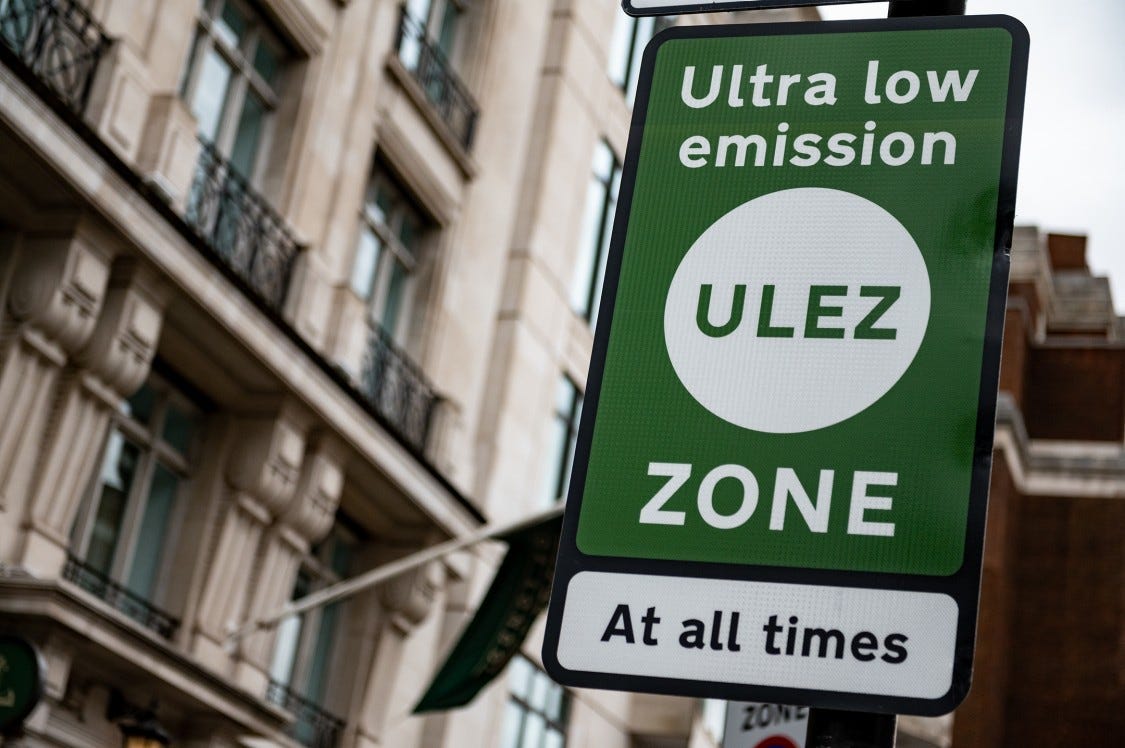Starmer's ULEZ intervention is an attack on devolution. Wales should take note.
Would a Starmer government tolerate dissent in Cardiff Bay?
The aftermath of the Uxbridge by-election - and the assumption that it was the Mayor of London’s expansion of the London Ultra-Low Emissions Zone that lost the election for Labour – has been politically instructive; not least for showing the profound lack of intellectual and political confidence at the heart of the Starmer project.
But it is not a London-specific squabble that we in Wales can ignore. On the contrary, taken alongside a number of developments in Labour politics in Wales, it has profound implications for Wales and devolution.
The reason is that the ULEZ issue goes to the heart of devolution. London is devolved; the Mayor of London is directly elected by and derives his mandate from the people of London, and his powers are set out in Acts of Parliament. So when the leader of the Labour Party in Westminster, Keir Starmer, calls in London Mayor Sadiq Khan and orders him to “rethink”, that’s not just internal Labour Party politics; it’s a direct attack on the principle of devolution. What the Mayor does is not, in the strict legal sense, any of Starmer’s constitutional business.
What does this mean for Wales?
One of the abiding catchphrases of Welsh politics is the idea that there is “clear red water” between Welsh Labour and its Westminster counterpart. Attributed to Rhodri Morgan (although it transpires he never actually said it), and originating in the mutual suspicion between Morgan and Tony Blair, it is a key part of the Welsh Labour brand. Welsh Labour has an organic relationship with its Westminster parent, but its politics, the branding insists, are made in Wales. And those politics are more radical, closer to the historical traditions of, for example, the founding ideals of the NHS and the social solidarity of the mining communities of the South Wales Valleys. And it is a brand that has, in electoral terms, dominated devolved Wales.
Except it’s only partly true. Welsh Labour is no more than a branding exercise; in terms of Labour’s constitution and structures it is part of, and wholly subordinate to, Labour’s National Executive. Obviously, Welsh Labour Senedd members are responsible to their electorates in Wales, and the Welsh party has enjoyed a good deal of autonomy. But that is a matter of convention. “Clear red water” survives for as long as Welsh Labour’s London masters are prepared to tolerate (or ignore) it.
And there is considerable evidence that Starmer’s apparatchiks are flexing their muscles in Wales.
With Westminster constituency boundaries changing ahead of the General Election, UK Labour Party has now intervened in three Parliamentary selections – in Aberconwy, Caerphilly and most notably in the new Merthyr Tydfil and Upper Cynon constituency, where the process was gamed to ensure that Cynon Valley’s left MP Beth Winter did not get selected over Starmer loyalist and current Merthyr MP Gerald Jones.
Admittedly, these are Westminster selections; one could argue that they are not directly relevant to devolution. But it is now being reported that Constituency Labour Parties are being pressured to by-pass the emerging conclusions of the Constitutional Commission set up by Mark Drakeford, and to back the conclusions of the review led by Gordon Brown – which had almost nothing to say about Wales, which rowed back on existing commitments to devolve policing, and which contained basic errors about Welsh political institutions. Mark Drakeford often talks about decisions about Wales being taken in Wales; but this is about decisions about the position of Wales within the United Kingdom under a Labour Government being taken in Westminster.
And, looking to the future, two major political events will shape the future of Welsh Labour. First, Mark Drakeford has made it clear that he does not expect to lead the party into the next election in 2026; there will be a leadership election before then.
Second, that 2026 election will be fought for a larger Senedd, on a new electoral system; a closed list system for a newly-enlarged 96-member Senedd, with six members being elected for each of 16 new constituencies formed by pairing the new Westminster seats.
In both cases, there will be ample opportunity for Labour in London to exert pressure on the outcome. It is known that there is tension between Starmer and Drakeford; they are, quite obviously, leaders cut from very different cloth. Mark Drakeford’s abstraction and mild air of dishevelment conceals a sharp and independent political mind; we know that Starmer’s Labour is all about sharp-suited obedience.
Moreover, with the Senedd election due to take place less than two years after Labour expects to form a Government in Westminster, it is difficult to see how Labour in London will resist the urge to game the selection for those closed lists; to ensure that dissenting voices are marginalised, and that the Labour group in new enlarged Senedd - which is likely to form, or be the dominant partner in, the Welsh Government - is obedient and compliant. Starmer’s enforcers will not tolerate dissenting Cymric voices challenging its austerian fiscal rules, or its support for the two-child benefit cap, or challenging the right of the motoring lobby to set transport policy, or its determination to “make Brexit work”.
We are used to the arguments that Brexit, and the centralising instincts of the Conservative Government at Westminster delivered it, are undermining the devolution settlement. We knew that Starmer was no friend of devolution, and certainly not of Wales’ increasing determination that decisions about our future are made here. But his crude interference in London’s devolved ULEZ policy reminds us that it is not just Conservatives who threaten autonomy for Wales.



